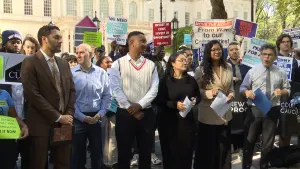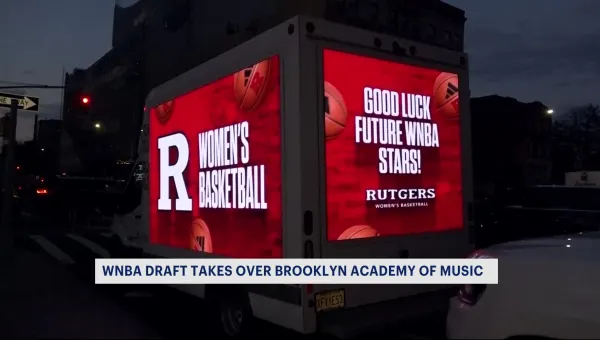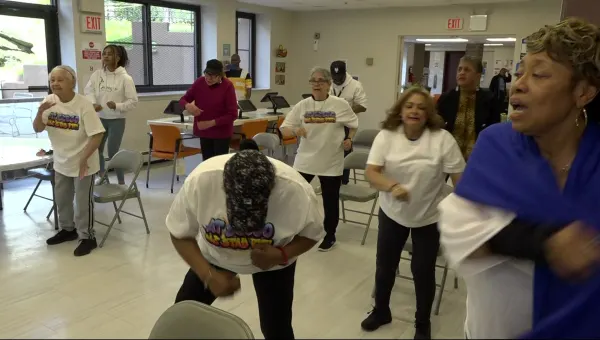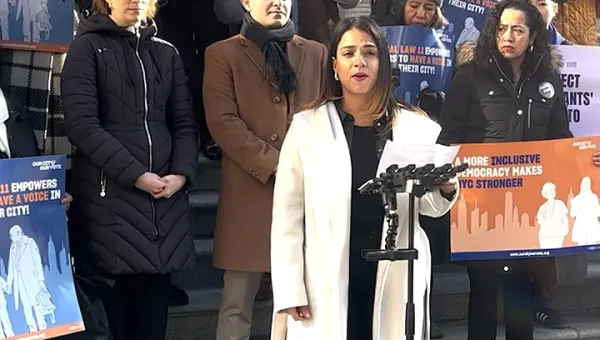Artifacts found in historic Monmouth County home to be part of exhibit about slavery
A new exhibit at the Monmouth County Historical Association is exploring the history of slavery in New Jersey.
News 12 Staff
•
Oct 23, 2021, 3:27 AM
•
Updated 906 days ago
Share:
More Stories
2:34

Guide: Safety tips to help prevent home burglaries
41ds ago2:19

Guide: Safety measures to help prevent fires and how to escape one
189ds ago2:40

Mayor's budget cuts: A controversial solution amidst immigration crisis
208ds ago2:07

Tips on how to avoid confrontation with sharks while swimming in the ocean
273ds ago2:33

5 tips to prevent mosquito bites and getting sick from viruses
284ds ago2:39

NEWS 12 EXCLUSIVE: ‘He drove into the water.’ Car drives off dock in Patchogue; News 12 crew helps in the rescue
305ds ago2:34

Guide: Safety tips to help prevent home burglaries
41ds ago2:19

Guide: Safety measures to help prevent fires and how to escape one
189ds ago2:40

Mayor's budget cuts: A controversial solution amidst immigration crisis
208ds ago2:07

Tips on how to avoid confrontation with sharks while swimming in the ocean
273ds ago2:33

5 tips to prevent mosquito bites and getting sick from viruses
284ds ago2:39

NEWS 12 EXCLUSIVE: ‘He drove into the water.’ Car drives off dock in Patchogue; News 12 crew helps in the rescue
305ds agoA new exhibit at the Monmouth County Historical Association is exploring the history of slavery in New Jersey.
Many may not have known that slavery existed in New Jersey. The exhibit at Marlpit Hall in Middletown intends to change that and to tell some of the stories of enslaved Black people in the state.
“New Jersey was actually the most southern of the northern states,” says Bernadette Rogoff, the director of collections.
The exhibit is called Beneath the Floorboards: Whispers of the Enslaved. It is the first exhibit to reinterpret Monmouth County’s 18th century historic homes to include the stories of enslaved men, women and children who once lived and worked in them.
“We knew that only half of the story was being told. We were only telling the story of the houses’ owners. We weren’t covering all the occupants,” Rogoff says.
The historical association recently discovered artifacts hidden beneath the floorboards of the home, some dating back hundreds of years.
“We soon started to discover things like corncobs, very deliberately placed clamshells, other organic materials. Then we started to find shards, bits and pieces of broken pottery – almost always blue and white and they were deliberately placed there,” Rogoff says.
The staff started to research what they found.
“I started reaching out to people at different universities and doing research to learn that these possibly retained spiritual traditions that were brought over from West Africa,” says Joe Zemla, associate curator. “The enslaved would make protective charms and would conceal them in different areas of the house as a means of protection.”
Many of the items were discovered in the attic, which also served as the slaves’ living quarters.
The exhibit is framed around seven Black Americans who were enslaved at Marlpit Hall. Pieces from the Monmouth County Historical Association’s museum were used to illustrate the larger story of slavery in Monmouth County.
The exhibit also includes statues to represent the people who worked in the home and to show how they occupied space. It is open to the public Friday to Sunday from noon to 5 p.m.





